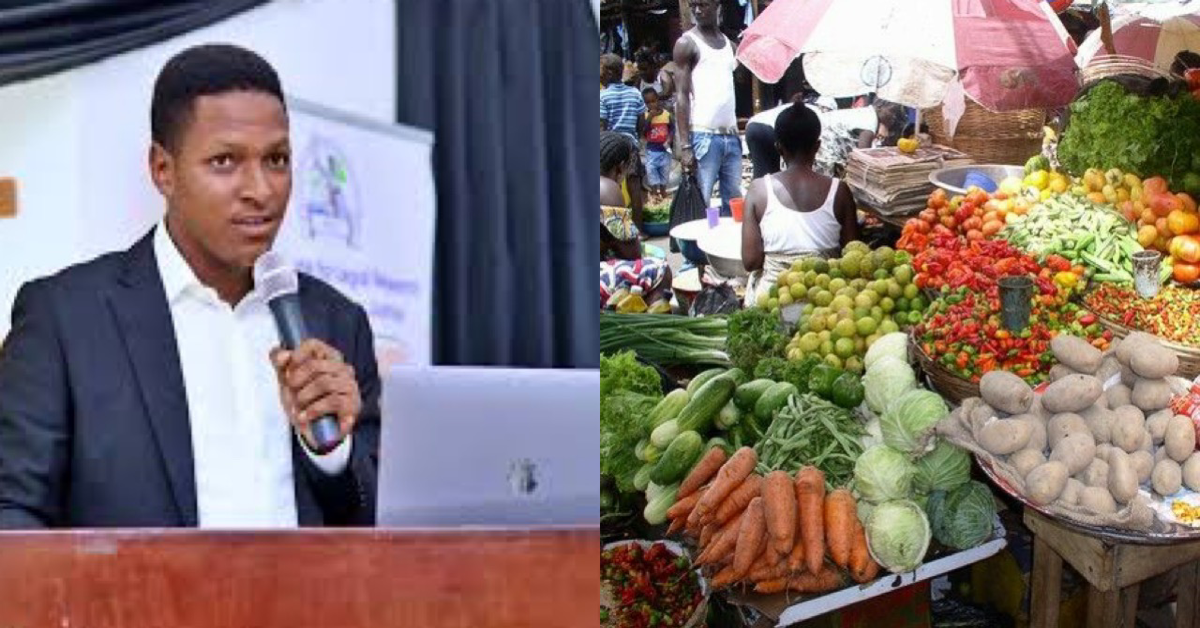Mohamed Wurie Bah, a prominent lawyer and human rights advocate in Sierra Leone, has raised concerns over the alarming rise in prices of basic food items in the country, despite the fact that many of these items are produced locally. Bah’s comments come as he expressed shock over the exorbitant prices during a recent visit to a local market with his wife.
Reflecting on his experience, Bah lamented the steep increase in prices, particularly noting the staggering cost of rice, a staple food in Sierra Leone. He revealed that a bag of rice is now fetching nearly Le 1,000, a substantial surge compared to previous prices. This observation underscores the financial strain faced by ordinary citizens as they grapple with the burden of soaring food costs.
He emphasized, , “Accompanied Madam to the market this weekend. My God, prices have skyrocketed. A bag of rice is almost Le 1,000 now the market lady claimed. Before, we cast the blame on Covid 19 and the Ukraine war. But plasas are grown here so are other commodities.”
Bah’s remarks shed light on a pressing issue that has been affecting Sierra Leoneans, prompting him to question the root causes behind the relentless escalation in prices. Despite external factors such as the ongoing Covid-19 pandemic and geopolitical conflicts like the war in Ukraine being often cited as contributors to global food price hikes, Bah emphasized that many essential food items, including “plasas” and other commodities, are locally grown in Sierra Leone.
The lawyer’s inquiry underscores the urgent need for authorities to address the underlying factors fueling the inflationary pressures on food prices within the country. Rising food costs not only strain household budgets but also exacerbate food insecurity, particularly among vulnerable populations.
As Bah aptly puts it, “Things are really hard,” encapsulating the shared sentiment of many Sierra Leoneans grappling with the economic challenges exacerbated by the relentless rise in food prices. His advocacy serves as a call to action for policymakers and stakeholders to implement effective measures aimed at mitigating the impacts of food inflation and ensuring food affordability and accessibility for all citizens.












Mr wurie bah all the points of view are in the right point of sense, 60% of the food stuffs in the country are locally produced and distributed in the country, but come to think of such…..every day the cost prices of food items are growing rapidly day by day,the country is under price inflation, we wish the prestigious excellency may put a finger look into the case it
We need price control in Mama Salon.
Lamin Kamara from kenema city.
Well said,Mr. Bah. Things are really tough in this part of the world. When the parliamentary and the Executive arms of government’s is one, the massive become vulnerable.
Well said Mr.Bah.
Mr bah you are right
But again let look at the transportation aspect
Basic imported goods such as rice has not increased as much as locally grown fruit and veg over the last two years. Prior to the last election, the dollar was blamed for the increase prices, more so locally grown food. Since then the dollar has remained or gone down. I believe the increase is due to greed or lack of trust in salone economic conditions. Take pineapple along, the price i used to pay for three now I am charged 100% more for a single one.
Lawyer Bah why are u not considering the common man? this is exactly the problem with this country u are absolutely missing the point here consider the fact that a pepper seller produces and sells inorder to buy rice or cement for construction did u consider this before laying the blame?a lawyer too needs some economic stuffs in his head hiw about the high production cost or transportation????